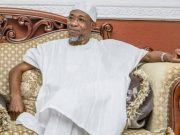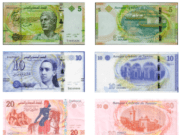The International Writers Association (IWA) has expressed profound grief over the passing of globally celebrated Kenyan writer and thinker, Ngũgĩ wa Thiong’o.
The revered literary icon, whose works spanned decades of intellectual, cultural, and political resistance, passed away leaving behind an unmatched legacy of courage, creativity, and commitment to African liberation through literature.
In a statement issued by Wole Adedoyin, Acting President of the International Writers Association, the Association described Ngũgĩ wa Thiong’o as a fearless literary revolutionary who redefined the place of language, identity, and decolonization in African literature. “Ngũgĩ was more than a writer—he was a movement, a conscience, and a symbol of intellectual independence for Africa,” the statement read.
Born in 1938 in colonial Kenya, Ngũgĩ wa Thiong’o emerged as one of Africa’s most influential literary figures. His novels, essays, plays, and academic work explored themes of oppression, resistance, language, and cultural identity. From Weep Not, Child to Decolonising the Mind, his works inspired generations of writers, students, and political activists around the world.
Ngũgĩ’s decision to abandon writing in English in favour of his native Gikuyu marked a bold and transformative moment in African literature. His belief that African writers should express themselves in African languages challenged the postcolonial literary establishment and emphasized the importance of cultural self-determination.
“The International Writers Association acknowledged with reverence the courage Ngũgĩ displayed in choosing prison over silence and exile over compromise. He showed us all that the pen can indeed be mightier than the sword,” Wole Adedoyin noted. Ngũgĩ’s imprisonment in the late 1970s and subsequent exile did not dampen his literary fire; instead, it strengthened his resolve to use writing as a tool for truth and transformation.
Throughout his lifetime, Ngũgĩ received numerous awards and honorary doctorates in recognition of his contributions to literature and human rights. Yet, he remained grounded in the African cause, often stating that he wrote not for glory but to amplify the struggles and hopes of ordinary people.
The International Writers Association urged young and emerging writers to study Ngũgĩ’s works and follow his example of purposeful and principled writing. His life reminds us that literature is not only about aesthetics but also about advocacy, agency, and action. He taught us that language is a vessel of power and memory and that every writer has a role in shaping the destiny of their society.
As the world mourns the passing of this literary titan, the International Writers Association called for a renewed commitment to the ideals Ngũgĩ wa Thiong’o lived for—cultural pride, linguistic liberation, and fearless storytelling. His voice may be silent, but his words will forever echo in the halls of history and hearts of readers.
Packaged by Alice Egbedele











































































